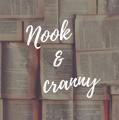Bref: It's not perfect, but I highly recommend it.
Takes place in Oxford in the 1830s. Very historical, except that the industrial revolution is the "silver industrial revolution", powered by the ability of linguistic scholars to do magic by writing a word and its translation on either side of a silver bar, with what is lost in the translation being manifested into the world.
I enjoy magic systems in fantasy that feel somewhat "hard" (defined, rulebound) and while the metaphor isn't subtle, I quite liked it. The industrial revolution is powered by the exploitation of the Third World and capital.
At times I found the unsubtlety of the politics in general a bit draggy, but for a very mainstreamy adventure romp it was pleasant for that dragginess to be like "the British empire and whiteness must be destroyed for humanity to live" and not like "love is the most powerful force in the universe". There's a bit of a tendency for identity to equal political alignment in a simplistic way, which is probably my biggest political issue with it, but again, that's so much better than most well-written, well-plotted fantasy adventures, that it's hard to be mad at it.
Non-specific discussion of the ending:
There's an element of the ending inflating the power of individuals -- very much contrary to the highly materialist and systemic critique of the book -- but, like the unsubtlety of some of the politics, this has countervailing things that undercut it and is excusable in the interest of making a good story. But in particular, I enjoyed the reading of the ending that is offered, that it's not actually as significant as the characters sometimes express. That dramatic political events are often powerfully motivated by grief, and there exists an irreconcilable tension between strategy and affect, each impotent without the other.
A combination of grief, historical sensibility, and political project is EXTREMELY my weakness.
I highly recommend it.












